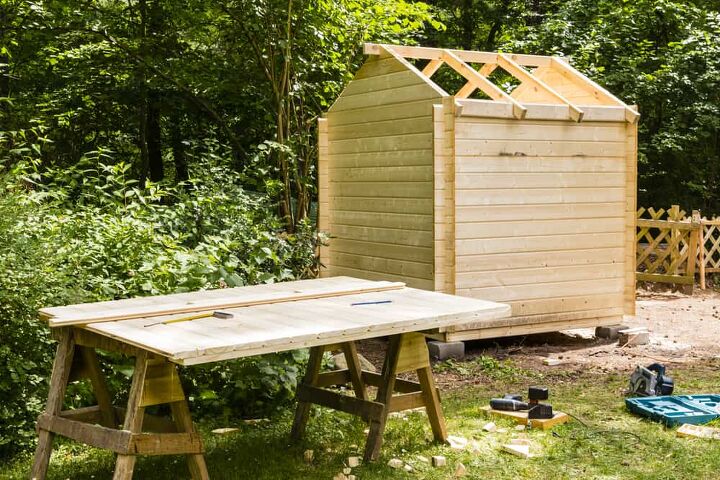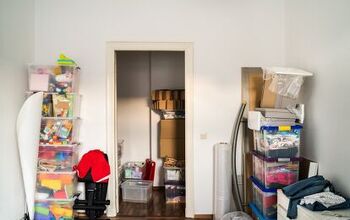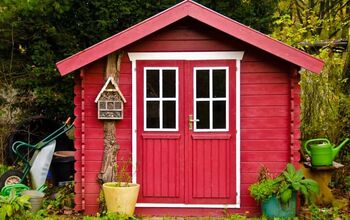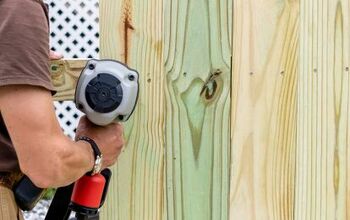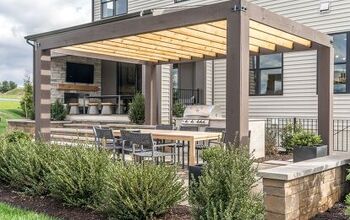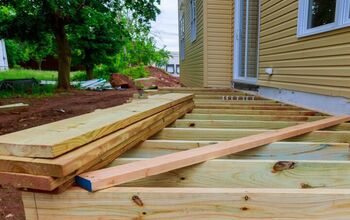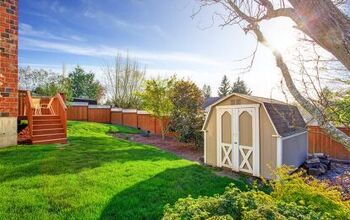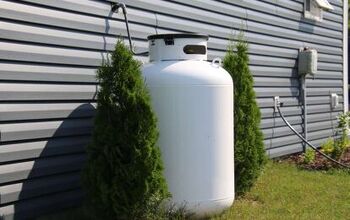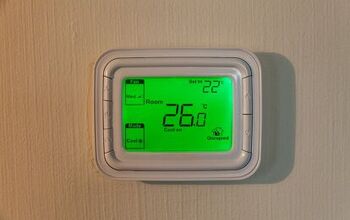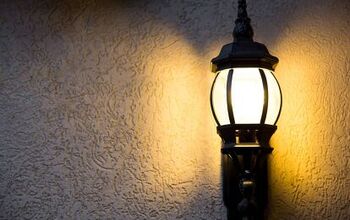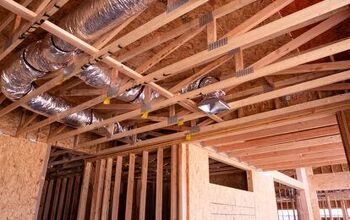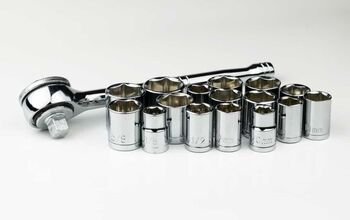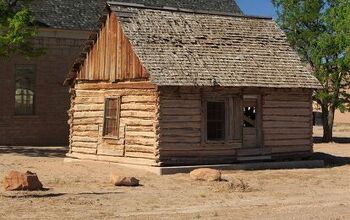Do I Need A Permit To Build A Shed In California?

Whether they’re intended for storage, extra workspace, or tiny guest houses, sheds sure do come in handy. Their uses seem never-ending, and they’re typically easier to build than an addition. And these things are especially true in California, where real estate and the cost of living can be pricey.
You do not need a permit to build a shed in California if it is no bigger than 120 square feet. Sheds that include plumbing and electrical work do require a permit in California, however. Permits for sheds with electrical work and plumbing cost an average of $1,000 in California.
Since permit requirements vary broadly from place to place, it helps to take a closer look. Here’s a deep dive into what type of shed does and doesn’t require permits in California.
Do You Need a Permit Service?
Get free, zero-commitment quotes from pro contractors near you.

What Does the California Building Code State?
The California Building Code (CBC)/ California Residential Code (CRC) 105.2 dictates some general circumstances regarding building small buildings. Basically, there are a few small structures that you may build without permits.
Among them are “one-story detached accessory structures used as tool and storage sheds, playhouses and similar uses.” This is allowed throughout the state, “provided the floor area is not greater than 120 square feet (11 square meters).”
But remember, the 120 square foot rule is only in regard to floor area. Other limitations on the dimensions of your shed, like height, often vary from one city to another.
Permits for Sheds Vary from City to City
Each city throughout the state of California has its own set of rules when it comes to building codes. For example, the Los Angeles County Public Works official website states that sheds are exempt from building permits. But only if “the height does not exceed 12 feet, and the maximum roof projection does not exceed 24 inches”.
In Sacramento, California’s capital city, the general rules for building a shed are similar, but the height requirements are different. A shed in Sacramento must be no taller than 9 feet.
You must also build it at least 6 feet from your home. And zoning requirements specify certain areas on your property where the shed is not allowed.
And if you live in other parts of the state, the requirements continue to differ. Unlike L.A. and Sacramento, the city of Stockton does require a permit in order for you to build your shed. This is the case in Stockton, no matter your structure’s dimensions.
So if you’re a Californian and you’re itching to build a shed, contact your local public works office. Your best bet is to inquire about your community’s building regulations. They’re always specific, and they will help you avoid a costly fine.
Do I Need A Permit To Build A Shed
Realistic Uses of a 120-Square Foot Shed
Before undergoing the process of applying for permits and building a bigger structure, consider a smaller option. It’s worth knowing how large and useful a 120, or 10 x 12, square-foot shed can be.
A 120 sq. ft. shed is generally considered medium-sized, and it can fit in a medium-sized yard. 10 x 12 sheds are big enough for use as both a workspace and storage facility.
You can store tools, garden and lawn equipment, and bicycles in this size shed. Plus, there should still be space leftover to move around easily.
Medium-sized sheds also work well as home gym spaces, art studios, and backyard offices. Therefore, a 10×12 structure may be all that you require. Just ensure you’re in compliance with your community’s rules on building and maintaining your shed.
If you’re sure that the size and purpose of your plans fall within your area’s regulations, then get to building!
What If You Need to Build a Shed Beyond the Maximum Space?
If you live in, say, Los Angeles, the above numbers account for the maximum size shed that you can build. Anything larger will require a permit, and possibly more than one.
Also, if you want to install any electrical, plumbing, or mechanical equipment in your shed, those items require separate permits. These same circumstances apply in other parts of California.
If you require a bigger structure than a medium-sized shed, you won’t have to “shed” all your plans. But, you will need to submit a building permit application, and a city inspector must check your written plan. Additionally, once you’ve built your new shed, expect an inspector to perform a physical building inspection, too.
The Basics of Building Permits
Applications for building permits are typically available online. The specifics of permit applications will differ depending on the area in which you live. Your local municipal website will typically have a link to all applications and instructions you need.
When applying for building permit applications, always expect to pay some application and inspection fees. The cost of these fees is based on the proposed cost of your building project.
The building inspector determines the fees based on the size and intended use of your shed. Also, remember those mechanical, electrical, and plumbing plans mentioned above? These elements will also affect the cost of your application fees, which means the price you pay can vary greatly.
Get in the Zone: Follow Zoning Rules for Your Shed
As mentioned earlier, your shed must conform to your city’s zoning rules. This is particularly true for setbacks and utility easements.
Setbacks
A setback is the minimum distance that a structure, such as your shed, must be set back from a street. There are setbacks for rivers, shores, flood plains, or other public spaces that need protection.
The amount of distance between a setback and your shed should be available in your city’s zoning regulations. This information can often be found on the same website as your local permit application.
Easements
An easement is a public utility space, upon and around which you’re not allowed to place any building. Many properties feature utility easements. If your land has an easement, its area may exceed the dimensions of your property’s required setbacks.
Before applying for a building permit, it is best to establish whether or not any easements exist on your property. Your city may have copies of some types of easements that may exist on your property.
But it’s recommended to check your title report before you go to your town’s public works office. This report will have the easements, too, which will save time in your application process.
Special Circumstances May Permit Your Shed to Pass Inspection
It’s important to note that building your shed ahead of a setback line may be permitted through special approval. Likewise, you may be allowed to build over an easement as well.
Like all the circumstances surrounding your permit application and building inspection, these situations are handled on a case-by-case basis. So, in addition to the dimensions of your new shed, be prepared to inform inspectors about its location, too.
Don’t “Shed” Any Tears Over Permit Applications
If all of the above seems like a big headache, fear not. With a quick online search, public works, zoning regulations, and building rules are easily available for every California community.
Should you have any questions about the specifics of the shed you’d like to build, contact your town’s municipal office. An employee should be able to answer your questions since they deal with such issues daily.
So get to work on the shed of your dreams. Before you know it, you’ll be flipping burgers out back and shouting Will Ferrell quotes at your kids. “Get off the shed!”
Do You Need a Permit Service?
Get free, zero-commitment quotes from pro contractors near you.

Related Questions
Can my neighborhood dictate whether or not I’m allowed to build a shed?
Private neighborhoods can place rules on structures that are allowed, and that includes. Neighborhoods councils and HOAs can prevent you from building a shed in some cases.
Is my shed taxable?
Sheds do not affect property taxes in every city, county, or state. City offices can let you know if your shed is taxable or whether or not you need a permit. Sheds can add value to your home even if they increase property taxes.
Related Guides

Stacy Randall is a wife, mother, and freelance writer from NOLA that has always had a love for DIY projects, home organization, and making spaces beautiful. Together with her husband, she has been spending the last several years lovingly renovating her grandparent's former home, making it their own and learning a lot about life along the way.
More by Stacy Randall



